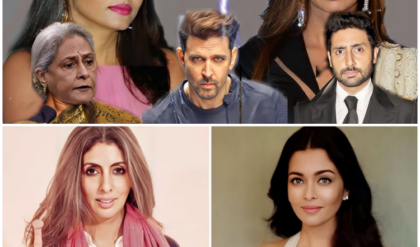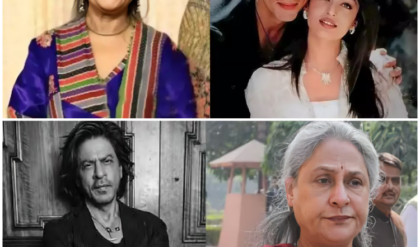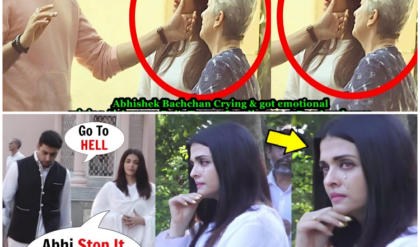Modi Showed a Mirror to Amit Shah on Lawrence Bishnoi in Salman Khan’s Father Salim Khan Interview: A Deep Dive into Politics, Crime, and Bollywood
.
.
In the complex and often murky world where politics, Bollywood, and crime intersect, a few events stand out as particularly intriguing. One such instance was a recent interview of Salim Khan, the legendary writer, and father of Bollywood superstar Salman Khan.
In this interview, Salim Khan dropped several bombshells, some of which reverberated beyond the film industry and into the corridors of political power.
Notably, it was revealed that Prime Minister Narendra Modi, in an unprecedented move, had pointed out the nexus between the underworld, specifically the infamous Lawrence Bishnoi gang, and the political establishment, while indirectly advising Amit Shah, India’s Home Minister, to take a closer look at the growing influence of these criminal figures.
The remarks from Salim Khan’s interview have since been a topic of heated debate, triggering a fresh wave of discussions about the growing threat of organized crime in India, the apparent political connections with criminal gangs, and the ongoing struggle between law enforcement and underworld figures like Lawrence Bishnoi, who is infamous for his criminal empire and his enmity with Bollywood celebrities, including Salman Khan.
To truly understand the implications of Modi’s ‘mirror’ comment to Amit Shah, one must delve into the broader context of this conversation, tracing the rise of Lawrence Bishnoi, his connection to Bollywood, and the political undercurrents that link the world of crime with national governance.
1. The Rise of Lawrence Bishnoi: A Criminal Force in the Shadows
Lawrence Bishnoi, a name that has repeatedly surfaced in the media over the past few years, is one of the most notorious gangsters operating in India today.
Known for his ruthlessness and violent tactics, Bishnoi has emerged as a significant threat in the world of organized crime, with a growing empire spanning across several states, including Punjab, Haryana, Rajasthan, and parts of Delhi.
What makes Bishnoi’s rise particularly alarming is his ability to maintain a high-profile presence, even though he is firmly entrenched in the underworld.
Bishnoi’s criminal activities are extensive, with his name being associated with murder, extortion, land-grabbing, and the illegal arms trade. However, what has truly brought him into the spotlight in recent years is his apparent obsession with Bollywood, specifically his animosity towards Salman Khan.
This feud between Bishnoi and Salman Khan dates back to the infamous 1998 blackbuck poaching case in Rajasthan, where Salman was accused of killing endangered animals, a crime that has since become a focal point of Bishnoi’s anger.
The Bishnoi community, known for its reverence of animals and nature, viewed Salman’s actions as a sacrilege, and Bishnoi vowed to take revenge on the Bollywood star.
While his personal vendetta against Salman Khan has been a subject of public interest, Bishnoi’s criminal activities have been more concerning for the authorities.
His growing influence and ability to operate under the radar of law enforcement, despite being incarcerated on multiple occasions, have raised questions about the underworld’s connections with political and law enforcement bodies.
His network includes several henchmen and associates across different states, many of whom are thought to have political backing, which has allowed him to maintain his influence.
2. Amit Shah, the Law, and the Growing Concern Over Criminal Networks
Amit Shah, the Home Minister of India, holds one of the most powerful positions in the country. His portfolio encompasses the country’s national security, law enforcement, and the administration of justice, which makes him a central figure in the fight against organized crime.
However, despite Shah’s tough image, there have been concerns about the growing influence of criminal syndicates like Bishnoi’s and the alleged complicity of certain political elements.
Salim Khan’s interview, which brought forth this complex issue, hinted at the fact that political establishments may be indirectly aiding the rise of criminal forces in the country.
According to reports from insiders, Prime Minister Narendra Modi, in a private conversation with Amit Shah, “showed a mirror” to the Home Minister regarding the increasing nexus between politicians and criminal gangs.
Modi, known for his strategic approach to governance, reportedly suggested that the Home Ministry needed to take a more proactive role in dismantling the growing power of criminals like Lawrence Bishnoi, whose influence now extends far beyond the underworld and into the public sphere.
The notion that criminals are increasingly having a say in political affairs has become an uncomfortable reality for many. It is alleged that the Bishnoi gang and other criminal organizations maintain close ties with political figures, particularly during elections, where they are rumored to provide muscle power, intimidate voters, or even facilitate large-scale financial transactions.
This reality has only fueled public skepticism about the political establishment’s commitment to addressing organized crime.
Modi’s alleged remarks to Amit Shah about “showing a mirror” reflected his concern that political leaders, perhaps even inadvertently, may have enabled these criminal forces by either turning a blind eye or engaging in under-the-table dealings with them.
The message was clear: if India is to curb the growing criminal influence, the political elite must address the issue head-on, rather than allow it to fester in the shadows.
3. Salman Khan’s Involvement: The Bollywood Connection
The intersection of politics, crime, and Bollywood is particularly evident in Salman Khan’s entanglement with Lawrence Bishnoi. As one of the highest-paid actors in the country, Salman has always been a favorite target for the underworld, especially figures like Bishnoi, who view the film industry as a lucrative playground for extortion, manipulation, and threats.
The enmity between Salman Khan and Lawrence Bishnoi goes beyond mere personal grudges. It is symbolic of a larger power struggle within the underworld. Bishnoi, with his growing criminal network, has been reported to send threats to Salman, primarily stemming from the blackbuck poaching case.
However, these threats have only escalated in recent years, with Bishnoi even publicly claiming responsibility for attempting to harm Salman. There have been multiple attempts on Salman’s life, and despite heightened security around the actor, the growing reach of Bishnoi’s network has posed a significant challenge to law enforcement.
It was in this fraught environment that Salim Khan, in his recent interview, spoke candidly about the rising threat not just to his son Salman but to the industry as a whole. Salim’s comments were both personal and political, as he alluded to the broader picture of how organized crime had intertwined with Bollywood and politics, creating a dangerous ecosystem of power.
What was particularly alarming was Salim Khan’s reference to how politicians, in some cases, may have inadvertently or intentionally turned a blind eye to the activities of gangs like Bishnoi’s.
While he did not point fingers directly at any specific individuals, the inference was clear: political interference and criminal collusion have created an environment where stars like Salman Khan are vulnerable to the whims of gangsters.
4. The Mirror Showed: Modi’s Indirect Reprimand to Amit Shah
The term “showing a mirror” used by Salim Khan to describe Modi’s remarks is an intriguing one. It suggests that Modi, in his wisdom, called out the need for the Home Ministry to confront the uncomfortable truth of criminal influence in politics.
According to sources, Modi’s conversation with Amit Shah was not just about the Bishnoi gang or the threats against Salman Khan, but also about the broader implications of how organized crime was influencing electoral politics and public discourse.
By “showing a mirror” to Amit Shah, Modi was signaling that the continued rise of criminal syndicates like Bishnoi’s would only harm the credibility and integrity of the political system.
The rising influence of these gangs, especially as they infiltrate the political machinery, can have far-reaching consequences for governance and national security.
Modi’s advice to Shah seems to be one of urgency — a call for the Home Ministry to take stronger actions against the growing hold of criminal elements on politics and society.
Moreover, this remark by Modi can be seen as part of his broader strategy to address the growing issues of law and order in India.
Modi has often positioned himself as a strong leader who is committed to maintaining law and order, as evidenced by his government’s crackdown on corruption and other criminal activities.
However, the challenge remains in dealing with the nexus between crime and politics, a problem that has deep historical roots in India.
5. The Impact on Bollywood: A Shifting Landscape
For Bollywood, the rise of criminal influence and the direct threats from gangs like Lawrence Bishnoi’s are a clear indication of a larger issue. Over the years, the underworld has maintained a significant presence in Bollywood, with gangsters using the industry as a conduit for money laundering, extortion, and even violent retribution. However, with the growing reach of figures like Bishnoi and their deepening involvement with the political establishment, Bollywood finds itself at a crossroads.
The continued threats against Salman Khan are a reminder that the film industry’s glamour and celebrity status cannot shield its stars from the machinations of the underworld. Actors, producers, and filmmakers who were once insulated from such threats are now increasingly finding themselves caught in the crossfire between crime syndicates and political power.
Salim Khan’s remarks, combined with Modi’s indirect reprimand to Amit Shah, serve as a wake-up call to the film industry. It is evident that Bollywood, as an integral part of Indian culture, needs to re-evaluate its relationship with the underworld and political forces.
If these concerns are not addressed, the industry’s future could be severely impacted by the growing influence of crime in its operations.
6. Conclusion: A Long Battle Against Crime and Corruption
The ongoing story of Lawrence Bishnoi’s criminal empire, his enmity with Salman Khan, and the political ramifications of these threats reveal the complexities of organized crime in India. Salim Khan’s recent interview, which highlighted Modi’s
News
Scandalous! Celebrity Caught in a Shocking Incident with a Fan in Public!”
Shocking Incident Involving Kareena Kapoor: A Fan Misbehaves in Front of the Media In a deeply unsettling incident, Bollywood actress Kareena Kapoor Khan found herself at the center of an unexpected and distressing situation when a fan reportedly touched her…
End of content
No more pages to load






